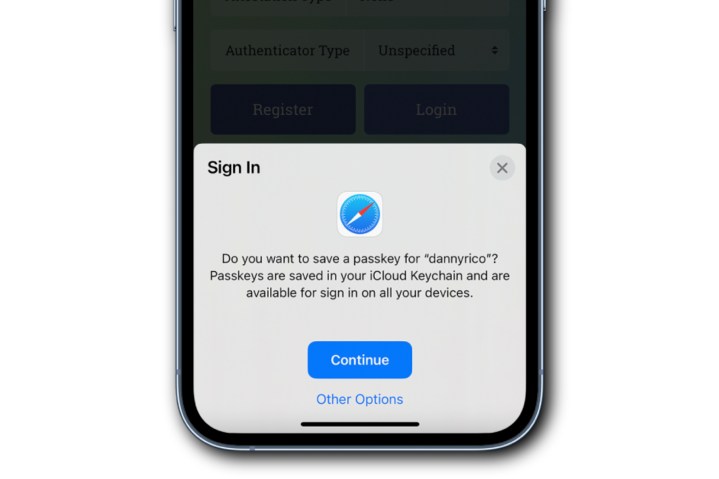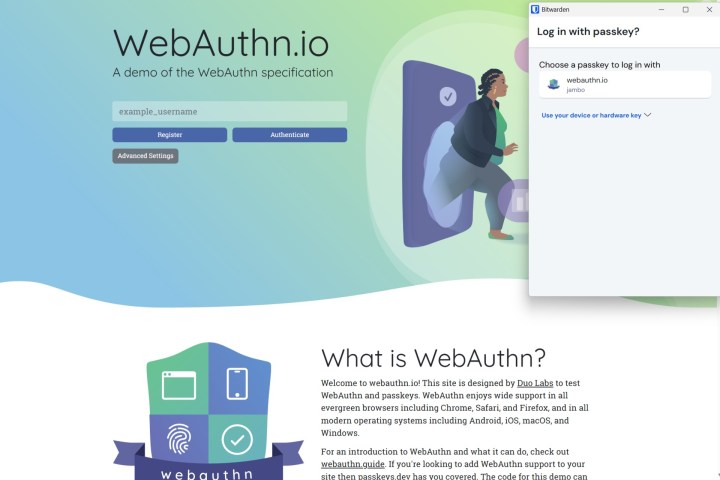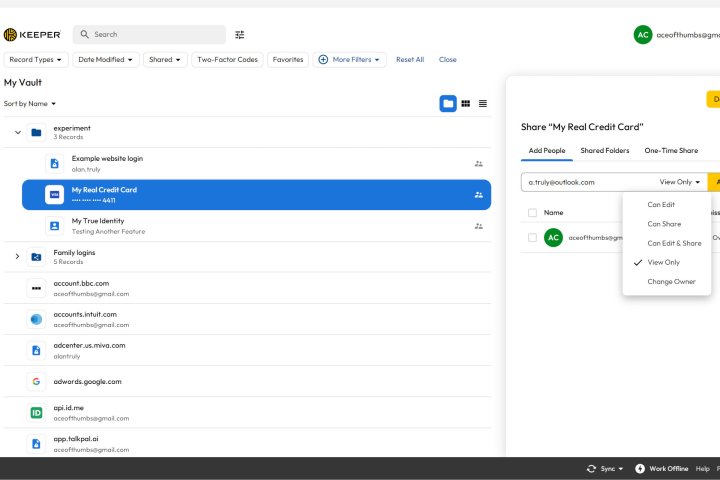Passkeys, a password-free authentication method, have been supported by Google and Apple for four years. You’ve likely encountered the passkey option when logging into websites. This begs the question: Do you still need a password manager in 2025, or can you switch to passkeys? Password managers simplify logins and streamline account management. However, eliminating unnecessary subscriptions is always appealing. Let’s explore the current state of passkeys and assess if passwords are truly obsolete.
Passkey Limitations: Universal Adoption Remains a Challenge
 Passkeys on an iPhone with iOS 16.
Passkeys on an iPhone with iOS 16.
Major platforms like Amazon, PayPal, and Uber support passkeys, enabling quick access via face or fingerprint scans. This convenience is undeniable when it works. However, passkey adoption isn’t universal. Website developers must implement the technology, which requires time and resources. Consequently, smaller companies often lack passkey login options. If you frequent niche retailers or local services, passwords remain necessary.
Even with website support, using passkeys across different devices can be problematic. Your iPhone and MacBook use Apple passkeys, while your Android phone and Windows PC utilize different systems. Each platform and browser has its own version, creating compatibility issues. Within Apple’s ecosystem, passkey support is consistent. Similarly, Android and Chromebooks offer seamless integration. However, cross-platform users face complexity in what was intended to be a simplified login solution.
Workarounds exist for these compatibility issues, but they may involve multiple browsers or authentication apps. Ideally, a single passkey should seamlessly transfer and function across all major operating systems and browsers.
Password Managers: Bridging the Gap to a Passwordless Future
 1Password offers to save passkeys when a website supports that technology.
1Password offers to save passkeys when a website supports that technology.
Password managers, like they did with the transition to complex passwords, can ease the current shift to passkeys. When creating an account on a passkey-enabled website, your password manager can assist. For instance, 1Password offers a pop-up to save a synced passkey accessible across all devices via biometrics, a PIN, or your master password, eliminating the need for traditional passwords.
 Bitwarden lets me log in with a passkey with one click.
Bitwarden lets me log in with a passkey with one click.
Bitwarden seamlessly integrates passkeys, offering one-click logins. This ideal simplicity highlights the current shortcoming of inconsistent standards between device manufacturers. Even if Apple, Google, and Microsoft passkeys were interoperable, widespread website support remains a challenge, potentially taking years. Meanwhile, password managers address both passkey inconsistencies and the ongoing need for managing numerous online accounts.
Password managers ensure cross-device passkey functionality and provide a consistent interface, eliminating the need to learn multiple authentication methods. They also generate and store strong passwords, freeing you from that responsibility.
 I can share a folder with Keeper
I can share a folder with Keeper
Sharing secure information, like notes and images, with family is another benefit of password managers. Keeper, for example, offers 10GB of encrypted storage and unlimited login and passkey saving and sharing. Password managers are generally affordable, with some like Proton Pass even offering free versions with passkey support.
The Future of Passkeys: A Gradual Transition
The prospect of eliminating passwords entirely is enticing. Effortless logins via face or fingerprint recognition are highly desirable. While passkeys aren’t yet universal, they’re inherently more secure than typed passwords, which are vulnerable to keyloggers and malware. Whenever possible, saving a passkey is recommended, streamlining logins on that specific device, even if passwords are still needed elsewhere. Full support and seamless compatibility will likely take several years, and the complete demise of passwords remains uncertain.
If you regularly switch between different operating systems and devices, a password manager simplifies passkey usage today and smooths the transition to a potentially passwordless future. Until we achieve a world with ubiquitous resources and equal opportunities, cybersecurity remains a necessity. And until passkeys become a universally supported solution with a consistent user experience across all websites and online services, password managers and robust antivirus software are essential tools for streamlining logins and protecting against hackers.











